The biggest change to agricultural contracting over the last 10 years is the amount of money involved. So says Padraig Noonan (43) who, along with his brother Seamus (38), took over the family farm contracting business based outside Conna, Co Cork, exactly a decade ago this year.
With the price of machinery having risen more since COVID-19 than in the previous 10 years, Padraig says he is “not surprised” smaller operators are exiting the sector.
Padraig is determined to make smart changes to the business model to keep the wheels turning for the next generation. [He runs: seven tractors, two Volvo loaders, two New Holland silage harvesters, two New Holland combines, 12 trailers, four ploughs, three drills, an umbilical slurry system, four slurry tanks, a nurse tank, a Big M 450 mower, two maize planters and more.]
“It all started here in the late 1960s. My grandfather, Paddy, had a dairy farm but my father, Moss, was more into machinery and wanted to make it into a serious contracting business. He has been contracting now for over 60 years, he’s 77 and still tipping away with us,” he said.
Dairy and tillage stronghold
Noonan Agri-Contractors Ltd really took shape in the early 1970s, before milk quotas. Located in a dairy and tillage stronghold, cutting silage and harvesting grain and sugar beet were the income drivers.
As a youngster Padraig “always had a grá” for machinery.
“I loved being on the machines with my father, even though I’d probably be asleep for half of it on the floor or a toolbox.
Though business was good, there was a lot less pressure, he recollects. All their tractors were second hand, ranging from 60-110hp, labour was plentiful, and farms were much smaller. “If my father couldn’t make it to a farmer to cut silage for two weeks they’d still be delighted once they knew he was coming,” he said.
By the time the ‘90s arrived, the Noonan’s introduced a self-propelled Hesston harvester and all their tractors were Ford. By the early 2000s demand started to increase.
After attending Kildalton Agricultural College and spending a year studying Agricultural Mechanics at Reaseheath College in Cheshire, England, Padraig returned to the family business brimming with new energy and ideas. “When I came home in 2003 we began the process of transferring responsibilities. It wasn’t straight forward, it took about 10 years to have a track record of credit history,” he said.
Padraig and Seamus didn’t set up the company until 2014, since then they’ve had more control over the day-to-day aspects.
Milk quotas
“When we finally took the reins everything was expanding, milk quotas lifted and workload surged. It has continued to increase ever since to be honest.
“We inherited machines already there; they were in good nick. The beet side was gone, so dairy became very important to us. There was big demand for slurry, silage, maize harvesting, reseeding, so we started to increase finance.
“At that time finance was easily available from the banks at great rates, so the clear option was to buy new machinery. It made it easier to expand, but running costs were hard to keep in line. The bigger the machinery got, the more you had to spend to keep it right – it’s one thing to own a Ferrari, it’s another thing to run one.”
The Noonans cover about 90 farmer clients within a 13-mile radius. Their customer profile has evolved from 50/50 dairy and tillage to about 80% dairy, mostly derogation farms.
“We do a lot of umbilical spreading now. We’ve altered over the years with a nurse tank which holds 22,000 gallons, so we draw slurry from the farm to the nurse and the umbilical system spreads it from the nurse tank.
“But it makes slurry spreading expensive, it’s costing around €200 an hour more,” he said.
Soaring costs
This is just the tip of the iceberg as Padraig says his overall costs have soared by 44-45% in the last three years due to an exhaustive list of rising machinery prices, labour shortages, fuel costs, carbon tax, and hikes in financing rates.
“Being a contractor nowadays you’re constantly spending money on machinery, it’s a constant turn. If you stop investing the wheel will come around and all of a sudden there will be a mountain of equipment that you won’t be able to invest in.
“Since 2020 I’ve seen the biggest hike in machinery prices. Tractor prices went up 15%, then another 15%, and another 15%. Other equipment has been creeping up by 8% every year too. Last year spare parts jumped by 50%, some of them by 80%.
“It’s trailers, balers, ploughs, where you would have paid €20-30,000 plus VAT a few years ago you’re now paying €45,000 plus VAT, it’s getting very hard to make anything out of it.
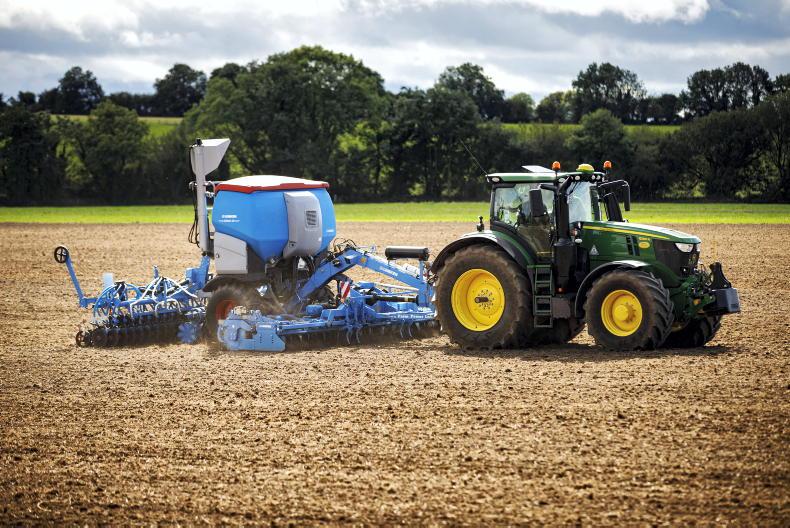
Since 2020, Padraig has seen the largest increase in machinery prices. \ Donal O'Leary
Financing
“Financing second-hand machinery is a big issue too, five years ago you could get finance for 5% whereas now you’re up at 7-8% depending on the machine and the year.
“In my experience when machinery prices go up, they rarely come down. We have to pass a certain amount of that on to our clients, we have no choice,” he said.
Most machines in Noonan’s yard now need skilled operators too. Although Padraig has eight or nine full-time employees, his staff requirement fluctuates to 12-14 during the summer peak.
“In my father’s time whether you were a good or not didn’t really matter, but that’s after coming home to roost now where those people you could rely on have moved away from agriculture and gone on to better things and maybe an easier life.
“Nowadays if you find someone good you have to try to hold onto them as best you can. I’m lucky enough that I have a lot of good employees that want to grow the business as well.”
While Padraig has less customers than 10 years ago, he won’t complain too much if this means dealing with less people to get through the same workload.
“From what I see on the ground, small farms are packing up and bigger farms are taking over, it’s basically the opposite of the what the EU says it wants to achieve.
“There are farmers with 70-80 cows being told they have to cut back and they are finding that it just doesn’t add up; they either have to spend more money to get more land, or cut back and make it a lot less efficient so they are just packing it in altogether and letting the land.
“The uncertainty is killing it, the constant movement of the goal posts, it makes farming very hard to manage.”
Price volatility and changing demands
Asked how his business is responding to the price volatility and shifting demands Padraig replied: “Trying to get an agri contractor will end up being like trying to get a builder, it will be very hard to get them when you want them.
“You will still get them to pick up silage and draw it into the pit, but when it comes to the ploughing, reseeding, agitating, spreading slurry, lime, fertiliser and spraying you will need a good operator and they will be harder to pin down.
“Spreading slurry is a fine art now compared to 10 years ago,” he says. “We’re almost like a consultancy explaining the pipes and consistency you need the slurry to be to flow through macerators, plus you’re up against deadlines and weather making what was an easy job a lot more difficult.”
He adds: “Contractors will inevitably start to prioritise farmers that are good to get paid from and good to work with and where
you don’t mind a bit of hardship here and there, a willingness to improve the area of work benefits everyone.”
New entrants into agricultural contracting should either work as a sole operator or be well-financed to go much bigger, according to Padraig Noonan. “If you’re a sole contractor just working yourself, you’ll get plenty of work. Your costs will be low once you don’t mind not driving a brand new tractor. This way you’ll be able to give a more personalised service to local people.
“Taking the next step where you’re employing one, two or three others, then all of a sudden it’s a job trying to keep them going too,” he said. “Unfortunately you need funds if you want to go bigger and, from my experience, it’s a great way to lose money too.
“You also need a commitment from the farmers you’re working for it’s gone to a stage where hoping you will get work won’t cut it. I’m very lucky to have a strong core base and family involved, but a contractor is only as good as their customers.”
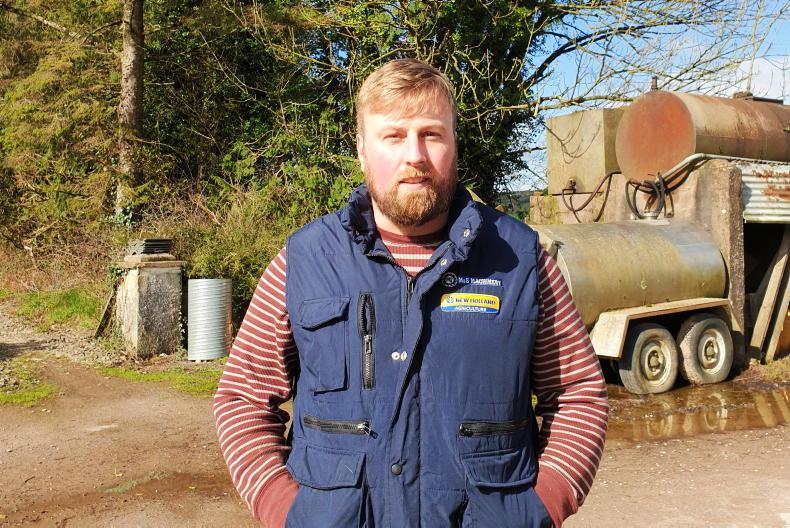
Padraig Noonan, Conna, Cork.
Reducing emissions
Padraig, who is also a member of the Farm and Forestry Contractors Association of Ireland (FCI), says contractors need to be able to access grants to purchase more environmentally efficient machinery. Grant access is currently only permitted to registered farmers.
“In Germany and Holland an agricultural contractor is recognised as a profession in a way that it isn’t here. If we are serious about reducing emissions, the agricultural contractor is the greenest way to go. But contractors need to be able to access grants to do this work,” says Padraig.
“Instead what’s happening is farmers are getting grants to buy Low Emission Slurry Spreaders that they might use for six months but it’s parked up after that because they don’t have the time or skills to use them.
“Contractors have a better understanding of land due to repeat business. You’re not just bringing the machinery, contractors know when to spread, where to spread, what to use, when it’s spreading bad, it’s nearly an advisory service. When a farmer wants to reseed, it isn’t Teagasc they are going to call, they will ring me to see what I think.”
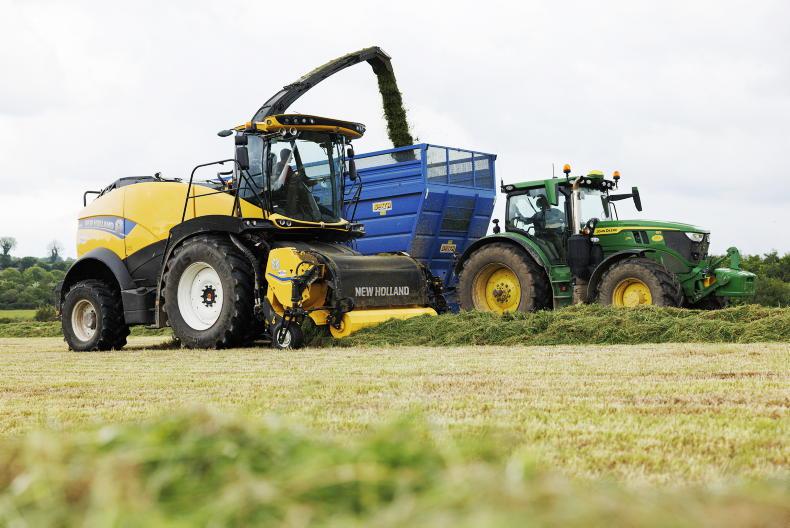
Padraig strongly believes all professional contractors need to be able to access grants to purchase more environmentally efficient machinery. \ Donal O'Leary
The biggest change to agricultural contracting over the last 10 years is the amount of money involved. So says Padraig Noonan (43) who, along with his brother Seamus (38), took over the family farm contracting business based outside Conna, Co Cork, exactly a decade ago this year.
With the price of machinery having risen more since COVID-19 than in the previous 10 years, Padraig says he is “not surprised” smaller operators are exiting the sector.
Padraig is determined to make smart changes to the business model to keep the wheels turning for the next generation. [He runs: seven tractors, two Volvo loaders, two New Holland silage harvesters, two New Holland combines, 12 trailers, four ploughs, three drills, an umbilical slurry system, four slurry tanks, a nurse tank, a Big M 450 mower, two maize planters and more.]
“It all started here in the late 1960s. My grandfather, Paddy, had a dairy farm but my father, Moss, was more into machinery and wanted to make it into a serious contracting business. He has been contracting now for over 60 years, he’s 77 and still tipping away with us,” he said.
Dairy and tillage stronghold
Noonan Agri-Contractors Ltd really took shape in the early 1970s, before milk quotas. Located in a dairy and tillage stronghold, cutting silage and harvesting grain and sugar beet were the income drivers.
As a youngster Padraig “always had a grá” for machinery.
“I loved being on the machines with my father, even though I’d probably be asleep for half of it on the floor or a toolbox.
Though business was good, there was a lot less pressure, he recollects. All their tractors were second hand, ranging from 60-110hp, labour was plentiful, and farms were much smaller. “If my father couldn’t make it to a farmer to cut silage for two weeks they’d still be delighted once they knew he was coming,” he said.
By the time the ‘90s arrived, the Noonan’s introduced a self-propelled Hesston harvester and all their tractors were Ford. By the early 2000s demand started to increase.
After attending Kildalton Agricultural College and spending a year studying Agricultural Mechanics at Reaseheath College in Cheshire, England, Padraig returned to the family business brimming with new energy and ideas. “When I came home in 2003 we began the process of transferring responsibilities. It wasn’t straight forward, it took about 10 years to have a track record of credit history,” he said.
Padraig and Seamus didn’t set up the company until 2014, since then they’ve had more control over the day-to-day aspects.
Milk quotas
“When we finally took the reins everything was expanding, milk quotas lifted and workload surged. It has continued to increase ever since to be honest.
“We inherited machines already there; they were in good nick. The beet side was gone, so dairy became very important to us. There was big demand for slurry, silage, maize harvesting, reseeding, so we started to increase finance.
“At that time finance was easily available from the banks at great rates, so the clear option was to buy new machinery. It made it easier to expand, but running costs were hard to keep in line. The bigger the machinery got, the more you had to spend to keep it right – it’s one thing to own a Ferrari, it’s another thing to run one.”
The Noonans cover about 90 farmer clients within a 13-mile radius. Their customer profile has evolved from 50/50 dairy and tillage to about 80% dairy, mostly derogation farms.
“We do a lot of umbilical spreading now. We’ve altered over the years with a nurse tank which holds 22,000 gallons, so we draw slurry from the farm to the nurse and the umbilical system spreads it from the nurse tank.
“But it makes slurry spreading expensive, it’s costing around €200 an hour more,” he said.
Soaring costs
This is just the tip of the iceberg as Padraig says his overall costs have soared by 44-45% in the last three years due to an exhaustive list of rising machinery prices, labour shortages, fuel costs, carbon tax, and hikes in financing rates.
“Being a contractor nowadays you’re constantly spending money on machinery, it’s a constant turn. If you stop investing the wheel will come around and all of a sudden there will be a mountain of equipment that you won’t be able to invest in.
“Since 2020 I’ve seen the biggest hike in machinery prices. Tractor prices went up 15%, then another 15%, and another 15%. Other equipment has been creeping up by 8% every year too. Last year spare parts jumped by 50%, some of them by 80%.
“It’s trailers, balers, ploughs, where you would have paid €20-30,000 plus VAT a few years ago you’re now paying €45,000 plus VAT, it’s getting very hard to make anything out of it.

Since 2020, Padraig has seen the largest increase in machinery prices. \ Donal O'Leary
Financing
“Financing second-hand machinery is a big issue too, five years ago you could get finance for 5% whereas now you’re up at 7-8% depending on the machine and the year.
“In my experience when machinery prices go up, they rarely come down. We have to pass a certain amount of that on to our clients, we have no choice,” he said.
Most machines in Noonan’s yard now need skilled operators too. Although Padraig has eight or nine full-time employees, his staff requirement fluctuates to 12-14 during the summer peak.
“In my father’s time whether you were a good or not didn’t really matter, but that’s after coming home to roost now where those people you could rely on have moved away from agriculture and gone on to better things and maybe an easier life.
“Nowadays if you find someone good you have to try to hold onto them as best you can. I’m lucky enough that I have a lot of good employees that want to grow the business as well.”
While Padraig has less customers than 10 years ago, he won’t complain too much if this means dealing with less people to get through the same workload.
“From what I see on the ground, small farms are packing up and bigger farms are taking over, it’s basically the opposite of the what the EU says it wants to achieve.
“There are farmers with 70-80 cows being told they have to cut back and they are finding that it just doesn’t add up; they either have to spend more money to get more land, or cut back and make it a lot less efficient so they are just packing it in altogether and letting the land.
“The uncertainty is killing it, the constant movement of the goal posts, it makes farming very hard to manage.”
Price volatility and changing demands
Asked how his business is responding to the price volatility and shifting demands Padraig replied: “Trying to get an agri contractor will end up being like trying to get a builder, it will be very hard to get them when you want them.
“You will still get them to pick up silage and draw it into the pit, but when it comes to the ploughing, reseeding, agitating, spreading slurry, lime, fertiliser and spraying you will need a good operator and they will be harder to pin down.
“Spreading slurry is a fine art now compared to 10 years ago,” he says. “We’re almost like a consultancy explaining the pipes and consistency you need the slurry to be to flow through macerators, plus you’re up against deadlines and weather making what was an easy job a lot more difficult.”
He adds: “Contractors will inevitably start to prioritise farmers that are good to get paid from and good to work with and where
you don’t mind a bit of hardship here and there, a willingness to improve the area of work benefits everyone.”
New entrants into agricultural contracting should either work as a sole operator or be well-financed to go much bigger, according to Padraig Noonan. “If you’re a sole contractor just working yourself, you’ll get plenty of work. Your costs will be low once you don’t mind not driving a brand new tractor. This way you’ll be able to give a more personalised service to local people.
“Taking the next step where you’re employing one, two or three others, then all of a sudden it’s a job trying to keep them going too,” he said. “Unfortunately you need funds if you want to go bigger and, from my experience, it’s a great way to lose money too.
“You also need a commitment from the farmers you’re working for it’s gone to a stage where hoping you will get work won’t cut it. I’m very lucky to have a strong core base and family involved, but a contractor is only as good as their customers.”

Padraig Noonan, Conna, Cork.
Reducing emissions
Padraig, who is also a member of the Farm and Forestry Contractors Association of Ireland (FCI), says contractors need to be able to access grants to purchase more environmentally efficient machinery. Grant access is currently only permitted to registered farmers.
“In Germany and Holland an agricultural contractor is recognised as a profession in a way that it isn’t here. If we are serious about reducing emissions, the agricultural contractor is the greenest way to go. But contractors need to be able to access grants to do this work,” says Padraig.
“Instead what’s happening is farmers are getting grants to buy Low Emission Slurry Spreaders that they might use for six months but it’s parked up after that because they don’t have the time or skills to use them.
“Contractors have a better understanding of land due to repeat business. You’re not just bringing the machinery, contractors know when to spread, where to spread, what to use, when it’s spreading bad, it’s nearly an advisory service. When a farmer wants to reseed, it isn’t Teagasc they are going to call, they will ring me to see what I think.”

Padraig strongly believes all professional contractors need to be able to access grants to purchase more environmentally efficient machinery. \ Donal O'Leary







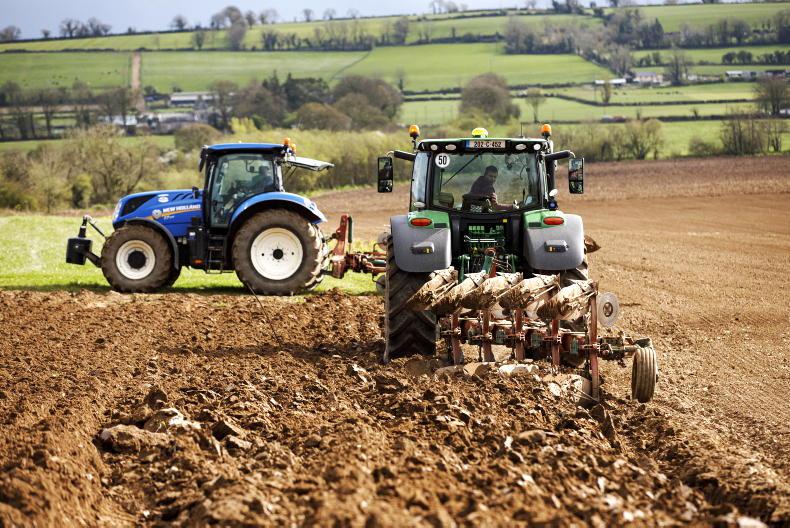
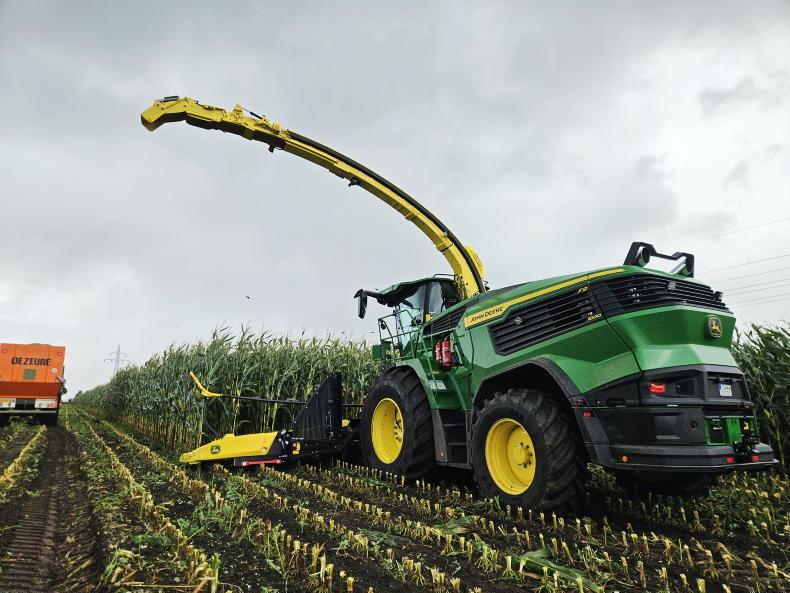

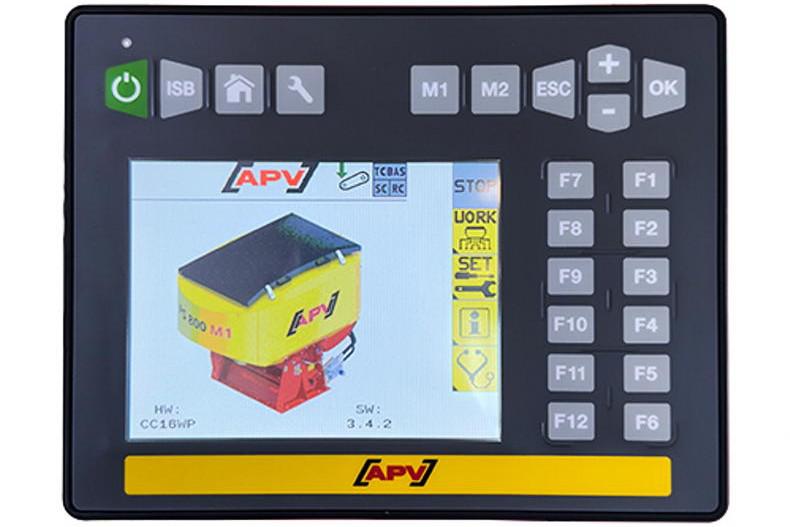
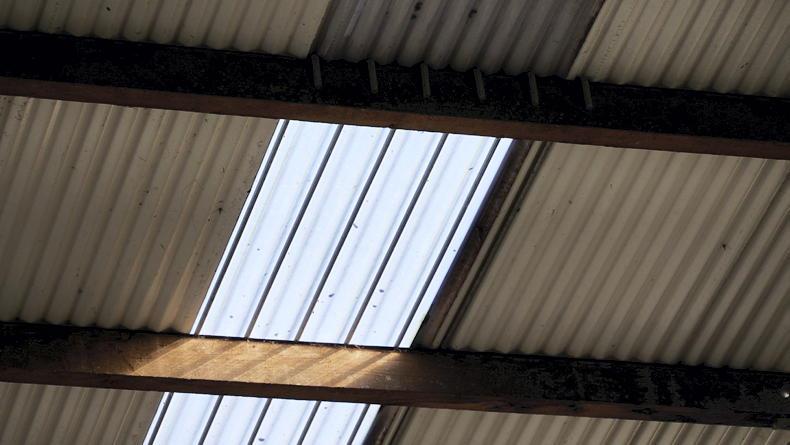
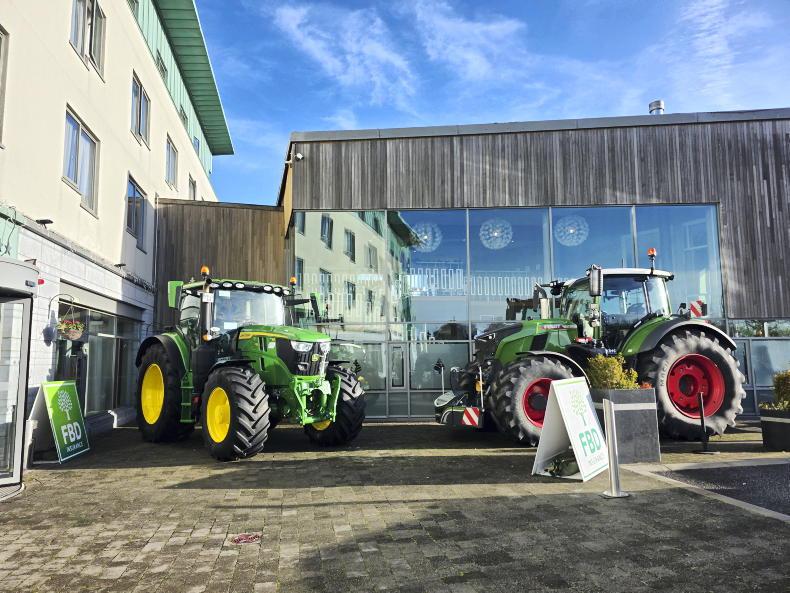
SHARING OPTIONS